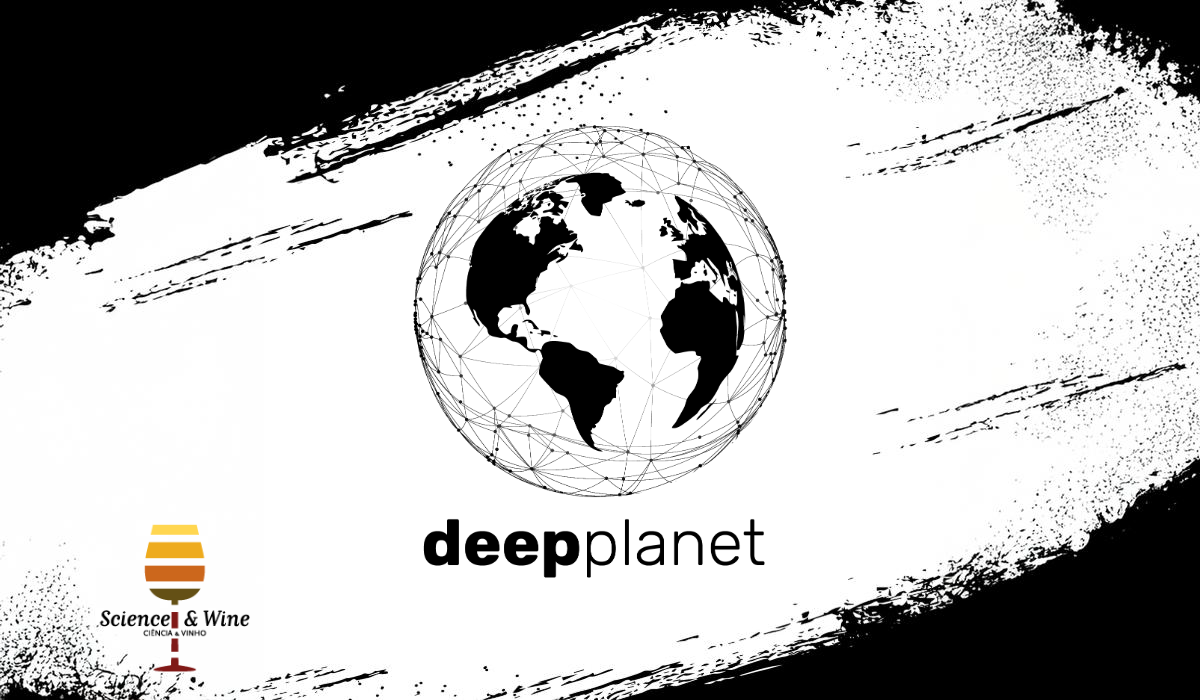Founded in 2018 by Oxford University scientists, Deep Planet is an AgriTech company leveraging artificial intelligence (AI) to address environmental challenges in agriculture, particularly in the wine industry. Their platform, VineSignal, offers precision tools for vineyard management, including optimal harvest timing, yield forecasting, disease detection, precision fertilization, soil carbon sequestration, and smart irrigation. These AI-driven solutions promote sustainability and resource efficiency, helping farmers and winemakers improve crop quality and minimize environmental impact. Deep Planet seeks partners to collaborate on advancing sustainable agriculture globally.

4th Science & Wine World Congress – Energy, sustainability, and green transition in wine and olive oil production
The 4th Science & Wine World Congress, scheduled for May 28-30, 2025, in Porto, will gather experts and stakeholders in energy, sustainability, and agriculture. This year’s congress, held under the University of Porto’s auspices, will spotlight sustainable practices and the green transition in wine and olive oil production. Selected to coincide with World Energy Day on May 26, the congress emphasizes the significance of green energy solutions for these industries. Attendees can explore energy-efficient practices like renewable energy use, precision agriculture, and waste heat recovery, as well as innovative technologies like digital labeling and smart farming. These advancements not only reduce environmental impacts but also enhance product quality and efficiency.

Viticulture and the European Union’s Common Agricultural Policy (CAP): Historical overview, current situation and future perspective
The paper emphasizes the importance of disseminating agroecological knowledge and implementing nature-based strategies to ensure the successful application of the CAP reforms. It calls for a collective awareness and effort from all societal sectors, including producers, consumers, and policymakers, to embrace environmental protection measures in agriculture. The paper also stresses the need to communicate effectively the benefits of biodiversity conservation and natural soil processes to accelerate the adaptation of agricultural systems to environmental challenges.
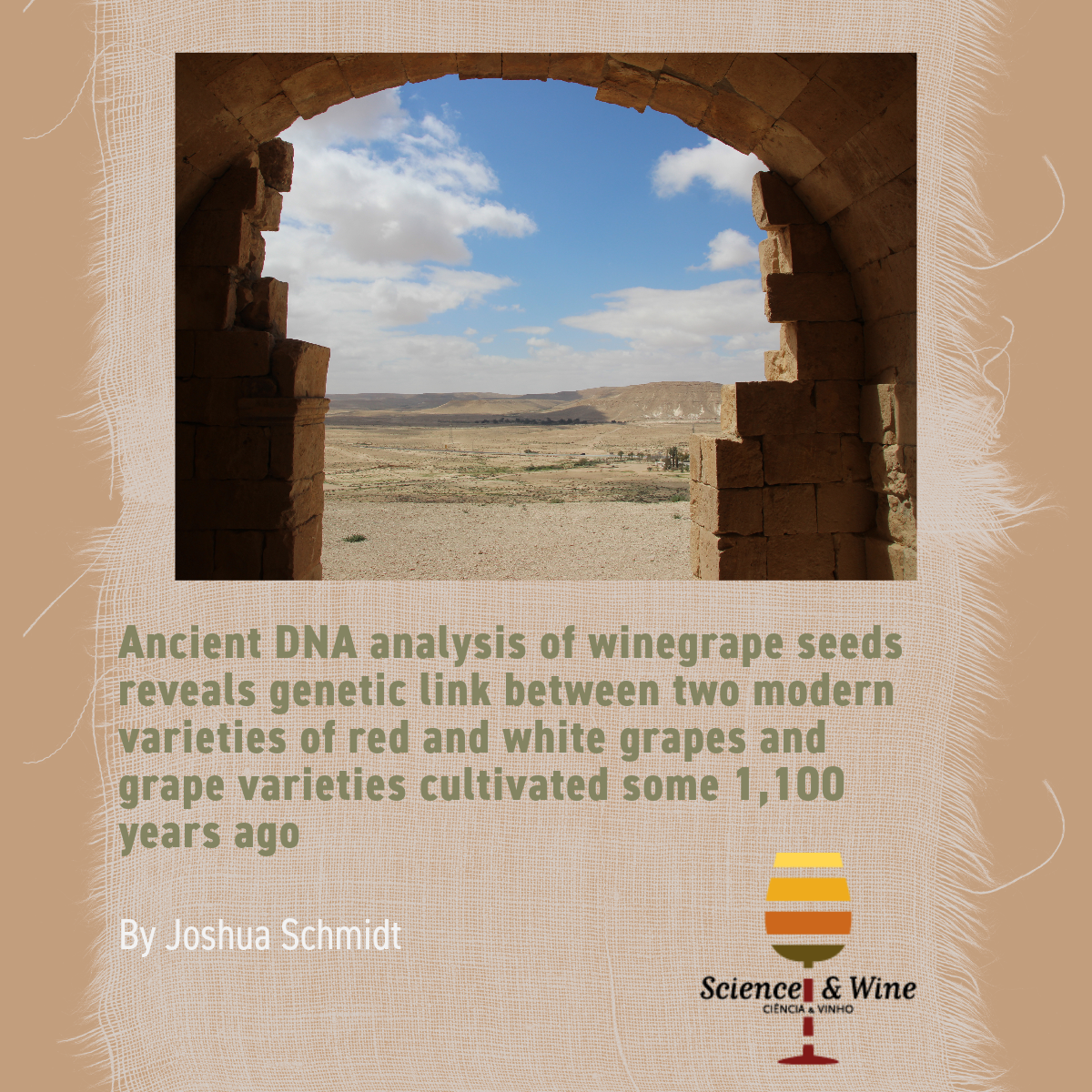
Ancient DNA analysis of winegrape seeds reveals genetic link between two modern varieties of red and white grapes and grape varieties cultivated some 1,100 years ago
One ancient seed was found to belong to the Syriki variety, still used to make red wine in Greece and Lebanon. Since winegrapes are usually named after their place of origin, it is quite possible that the name Syriki is derived from Nahal Sorek, an important riverbed in the Judean Hills. A second seed was identified as related to the Be’er variety of white winegrapes still growing in the sands of Palmachim on Israel’s southwestern Mediterranean seashore.

3rd World Science & Wine: Sustainability of wine production and food systems in the Mediterranean region
As promised, we will maintain the organization of the World Congress every two years. The 3rd World Science & Wine Congress will be from 14 to 16 June 2023 in Vila Nova De Gaia and the Douro region. The topic for this scientific meeting here will be “Sustainability of wine production and food systems in the Mediterranean region”.
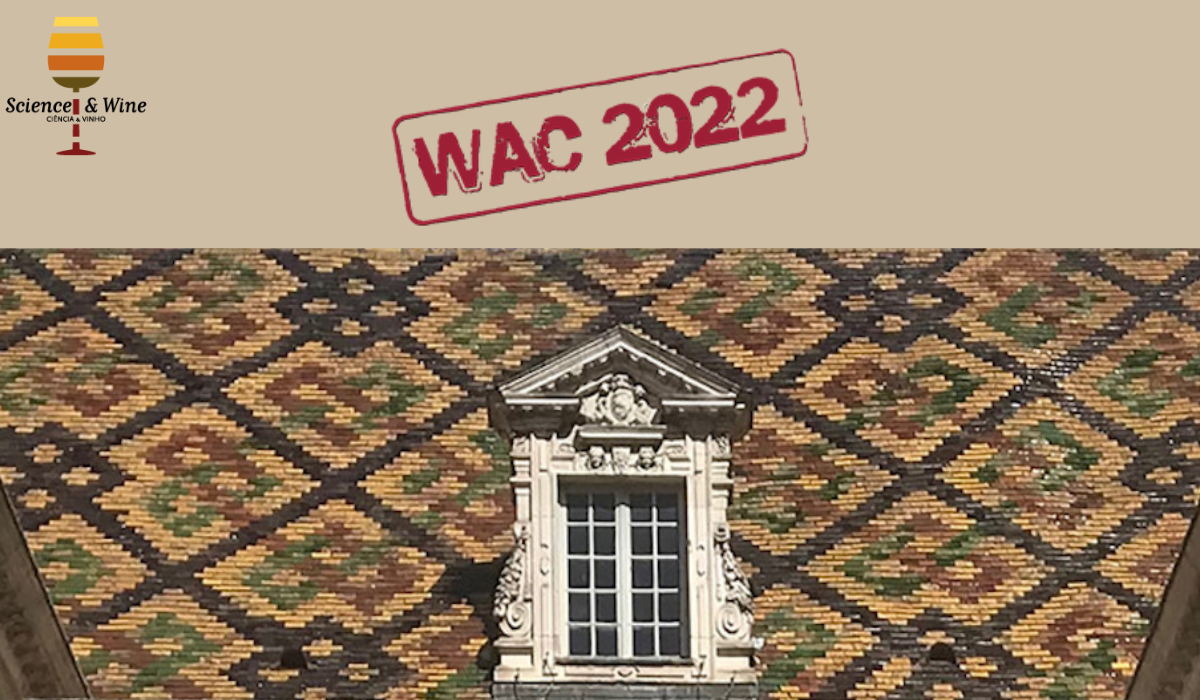
5th Edition of the Wine Active Compounds (WAC) Congress, Dijon 2022
After two successive postponements, the fifth edition of Wine Active Compounds (WAC) 2021 happened in the Palace of the Dukes of Burgundy in Dijon, France, from Wednesday June 29 to Friday July 1, 2022, under the auspices of the UNESCO Chair “Culture & Traditions of Wines” and the Institut Jules Guyot at University of Burgund.
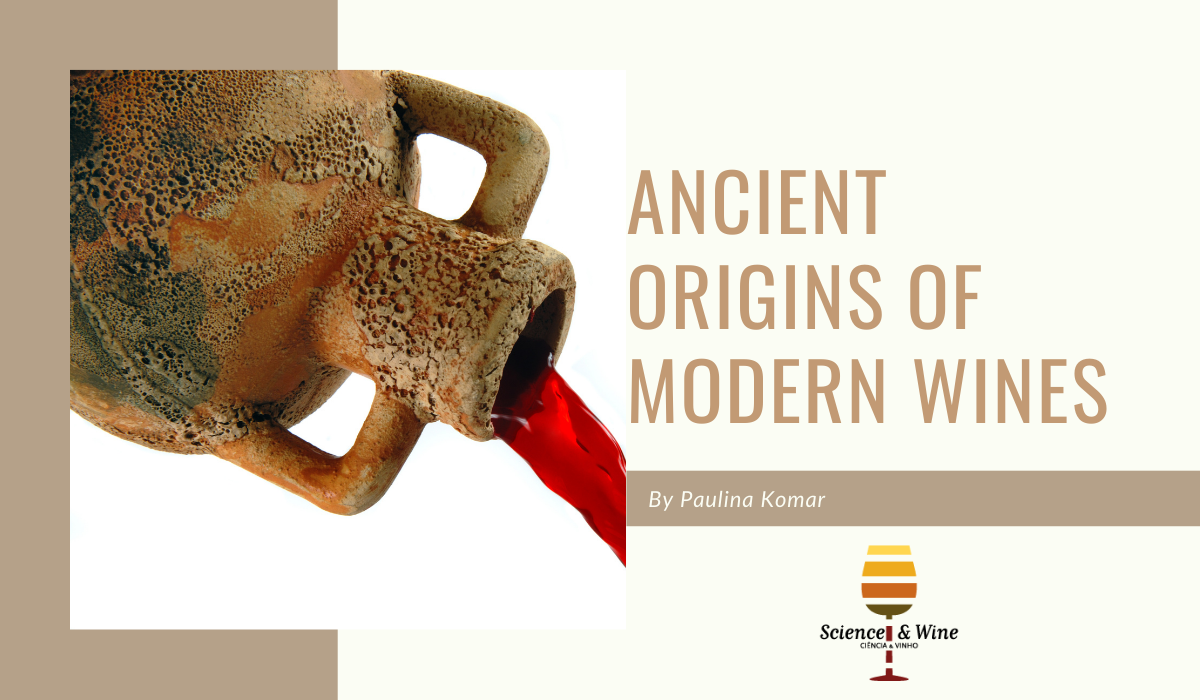
Ancient origins of modern wines
Wine was being made almost 8.000 years ago! The earliest known wine remains, which were discovered in clay jars from the South Caucasus in Georgia, have been attested by chemical analysis to date to ca. 6.000–5.800 BCE. This agrees with climatic and environmental reconstructions, as well as with archaeobotanical evidence, which points to Georgia being the cradle of viticulture and wine making (McGovern et al. 2017). Not far from Georgia, in the Zagros Mountains in northwestern Iran, wine remains dated to ca. 5.400 BCE have been preserved in pottery vessels together with traces of resin, which might have been added as a preservative (McGovern 2003). This suggests that early Iranian wine had a similar taste to the Greek retsina of today, to which pine resin is added during the fermentation process. Does this mean that all ancient wines had this resinated taste? Not necessarily! The ancient written sources, when approached from an oenological point of view, suggest that ancient Greek and Roman wine makers were quite advanced, as they could produce many of the drinks that we know today.
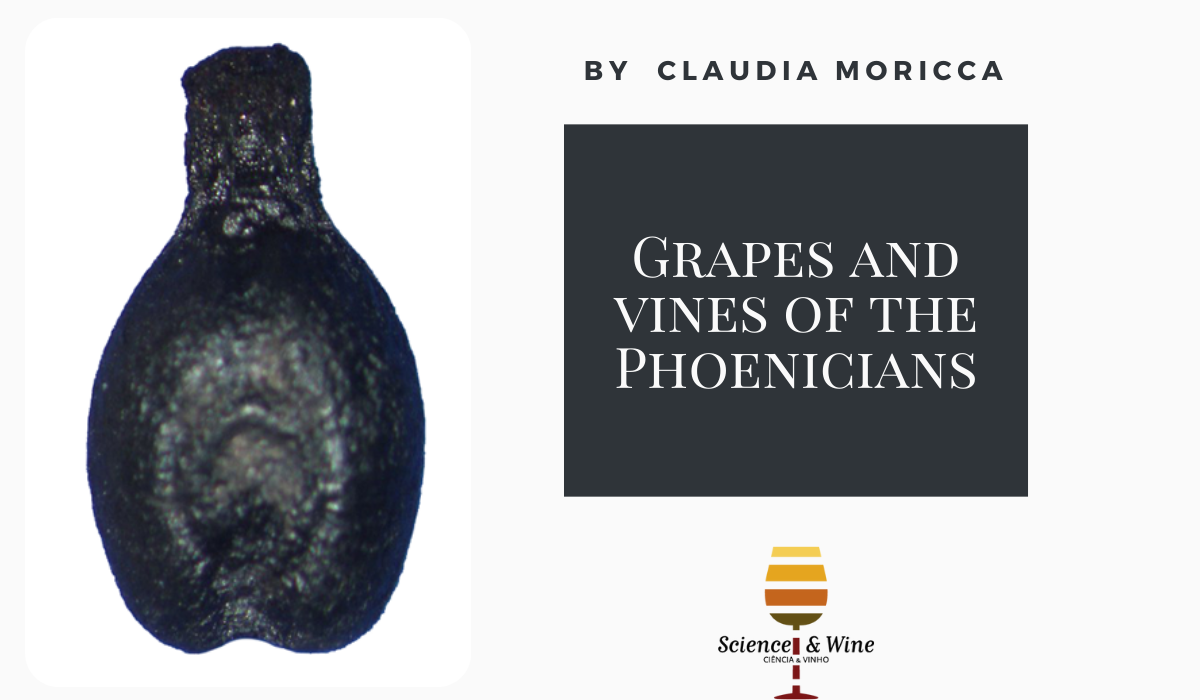
Grapes and vines of the Phoenicians: Morphometric analyses of pips from modern varieties and Iron Age archaeological sites in the Western Mediterranean
The present post summarizes the results of a study aimed to contribute to the investigation of the role of Phoenicians in the spreading and trade of the grapevine through the morphometric analysis of grape pips. Waterlogged and charred samples were selected from three Iron Age sites in the Western Mediterranean: Motya (Sicily, Italy), Nuraghe S’Urachi (Sardinia, Italy) and Huelva (Andalusia, Spain). While only Motya is a Phoenician foundation, all three were nevertheless associated with Phoenician expansion and cultural interaction. Ten cultivars from the “Vivaio Federico Paulsen” in Marsala (western Sicily) were chosen as modern reference material. This analysis represents a first step towards a better understanding of diachronic and synchronic relationship between vines grown in the ancient West Mediterranean, which could be expanded by analysing grape pips from more contexts and more sites, compared against a wider selection of modern cultivars.
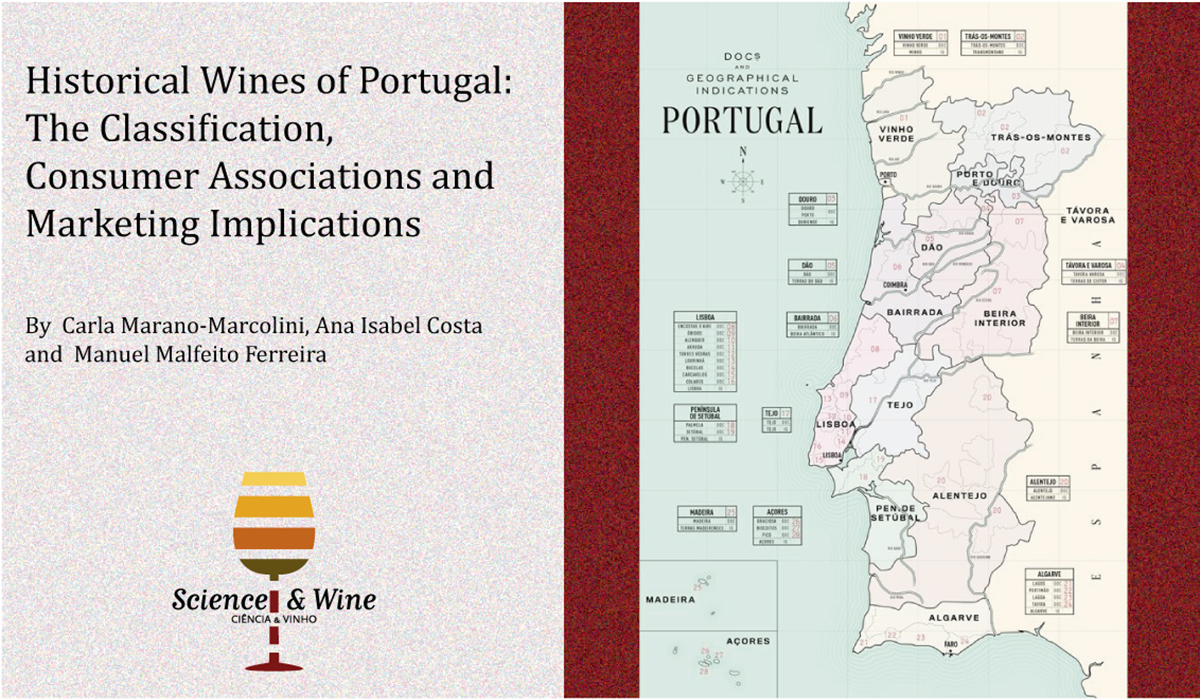
Historical Wines of Portugal: The Classification, Consumer Associations and Marketing Implications
Geographical origin, use of traditional varieties and ancestral viticulture/oenology practices characterize wines classified as Historical Wines of Portugal (HWP). This post reports a study that identifies the authenticity attributes consumers associate with this classification and assesses the relative strength of associations. Compared to Aspirational Explorers, wine connoisseurs emerged as Heritage Gatekeepers, associating origin, cultural heritage, quality, production and at-home consumption more strongly with HWP, and tradition, wine age and out-of-home consumption less strongly. Market recognition of HWP as a novel and distinctive table wine classification, with well-defined and unique attributes, is thus likely to depend on consumers’ general wine knowledge. Related promotional activities targeting wine novices should first focus on educating them on HWP classification, whereas those directed at savvier consumers should emphasize wine authenticity cues instead.

Understanding ‘Malbec’ clonal diversity through genomics and history
Malbec is a cultivar that is well-appreciated for the elaboration of red wine. It originated in Southwestern France and was introduced in Argentina during the 1850s. In order to study the clonal genetic diversity of Malbec grapevines, the authors of this post generated whole-genome resequencing data for four accessions with different clonal propagation records. The results show the usefulness of this approach for the study of the scarce intra-cultivar genetic diversity in grapevines. We also provide evidence on how human actions might have driven the accumulation of different somatic mutations, ultimately shaping the Malbec genetic diversity pattern.

